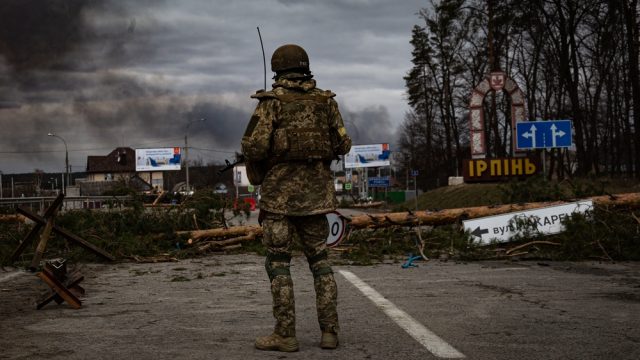
Arming Kiev is the only effective way to counter the incursion of Vladimir Putin’s troops into Europe and to avert the risk of greater Russian interference on our continent. The European Union, which has earmarked some 200 billion euros for Ukraine in the form of economic, humanitarian and military aid and the creation of a new instrument for the repair, rehabilitation and reconstruction of Ukraine, knows this very well, as does the United States, which in recent weeks has approved a new military aid package worth some 95 billion dollars, 60 billion of which has been earmarked specifically for the conflict in Ukraine. This was a major step forward for the United States, achieved largely thanks to the efforts of Republican Congressmen, after months of diplomatic cooperation and military support, and the threat to blow up the aid plan for Ukraine. The approval of the package was thus made possible by Donald Trump, who, abandoning the isolationist line of the last period, was keen to point out how important support for Ukraine is not only for Europe, but also for the United States, in terms of defending the borders of the NATO area and, in the future, in terms of post-conflict agreements with other superpowers.
Trump awakens Europe
However, Donald Trump’s support has not been without its criticism of Europe. Indeed, the tycoon has repeatedly tried to shake up EU member states over their arms deliveries to Ukraine and their contributions to NATO. In fact, Trump’s “threat” is that if he is elected as the next US president, he will no longer consider providing further aid to Ukraine if Europe does not commit to doing more. “I said I’m not going to give anything” to Ukraine “unless Europe starts doing the same, they have to step up, Europe has to pay,” the Republican candidate said in an interview with Time, adding that “we’ve given so much more than the European nations. And it’s very unfair to us. And if Europe doesn’t pay, why should we?” Trump’s words should be translated as a push for Europe to do better and more in Ukraine. Ukrainian President Volodymyr Zelensky himself made it clear on X that his army needs more help from allies to defeat Russian troops: “Russia’s regular rocket attacks and the occupier’s efforts to destroy as many Ukrainian positions as possible can be stopped. And Russia’s offensive plans can be countered. To do this, the Ukrainian armed forces must be backed up by sufficient support from partners: the “patriots” Ukraine needs now, the 155 mm calibre that must sound as safe as possible on the front line, and weapons with sufficient range to destroy Russian logistics. All partners’ intelligence services are informed of current threats and developments. We must make every effort to achieve our goals, which are shared by everyone in the world who despises terrorists”.
A favourable scenario to be exploited
Meanwhile, the Russian advance continues, with rocket attacks on Odessa and Kharkiv in recent days resulting in several deaths and injuries, including many civilians. Russian troops are gaining ground, although in the long run Putin’s army is likely to suffer an irreparable defeat on the ground, under the blows of international isolation that will be keenly felt. This was sanctioned by Feng Yujun, a professor at Peking University and a leading Russologist in China: the first time that even the intellectual elite has responded to Putin’s pressure. According to the professor, “in time, Russia will be forced to withdraw from all occupied Ukrainian territories, including Crimea”. This is a largely favourable scenario for the West, which should therefore be persuaded to make further efforts to support Ukraine.



 Subscribe
Subscribe